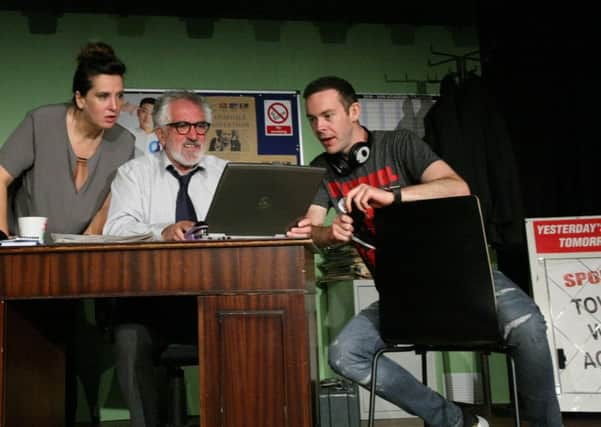Theatre reviews: The Last Witch | Losing the Rag


The Last Witch, Pitlochry Festival Theatre ****
Losing the Rag, Oran Mor, Glasgow **
Originally premiered at the Edinburgh International Festival, The Last Witch explores the forces of unreason against which the Scottish Enlightenment took up intellectual arms, in the early 18th century; yet it does it in a way so intimate, and so closely linked to the personal story of Janet Horne – who, near Dornoch in 1727, became possibly the last woman ever officially burned as a witch in these islands -–that it often seems more like a timeless study of misogyny, and of the hatred and fear of powerful, independent women that still helps shape our culture today.
So when we first meet Janet Horne – brilliantly played by Deirdre Davis, in the last of a series of outstanding performances this season – she is meditating on the power of nature, and arguing with her teenage daughter, whom she has brought up alone.
Advertisement
Hide AdFrom the outset, it’s fairly clear that Janet has no real magical powers; she is a dreamer, an outsider, an angry, beautiful and sensual woman who has made a meagre living out of the idea that she is a witch, with power to heal as well as curse. When the cold hand of the law arrives in Dornoch, though, in the shape of a new young sheriff called David Ross, it soon becomes clear that the comfortable fudging of Janet’s status as local witch and generally accepted member of the community will not no longer be tolerated, and that Janet is about to be subjected to the full force of the law.
In Richard Baron’s memorable, gripping and beautifully-crafted production, all of this is conveyed in a wonderfully lucid style by an impressive ensemble, which includes Fiona Wood as Janet’s daughter Helen, and David Rankine as Ross, along with Helen Logan, Alan Steele, and Alan Mirren. There’s a memorable score by Jon Beales, all ringing bowls and wild laments, and a restrained but memorable set by Ken Harrison.
And when Janet and her friend Elspeth Begg finally gaze at one another over the flames that are consuming her, the message in their eyes is one of timeless female solidarity, even as they submit to the laws of men.
An enlightened nation needs good journalism, at both local and national levels; yet as Alan Muir’s new play Losing The Rag observes, Scotland has already lost, and continues to lose, whole layers of the kind of local journalism that was once an essential part of small-town life.
Muir’s play, though, is not the first Play, Pie & Pint drama to lament this particular sign of changing times; and in truth, it offers a fairly tedious litany of predictable comments, familiar stereotypes, and jokes so lame and elderly they would barely pass muster in the pub.
The show does offer the impressive spectacle of Gerry Mulgrew, a truly great actor, heroically raising one or two scenes to the status of drama; but otherwise, this is an unimpressive start to the PPP season, and one that will disappoint fans of Muir’s much more lively debut play, about Mohammed Ali’s legendary visit to Paisley.
JOYCE MCMILLAN
*The Last Witch is in repertoire at Pitlochry until 11 October; Losing The Rag, final performance today.